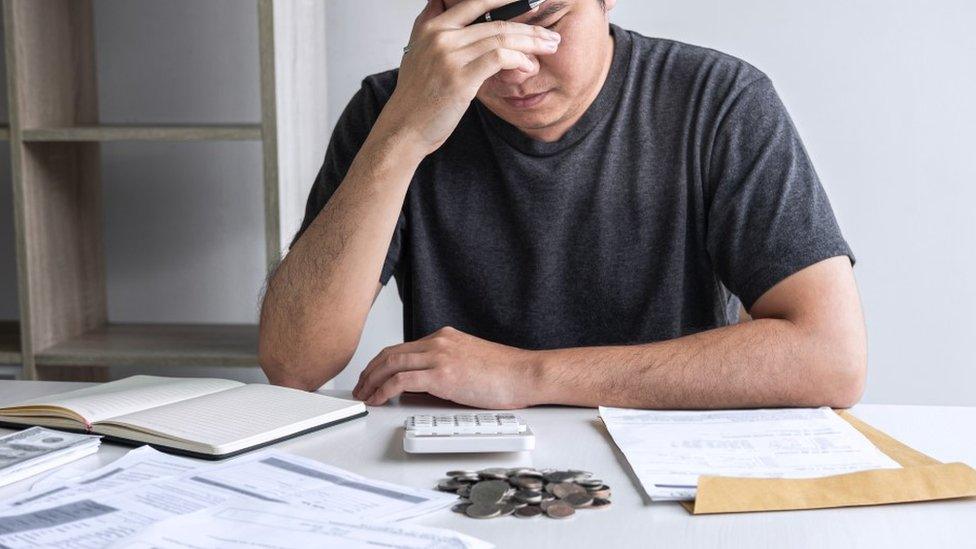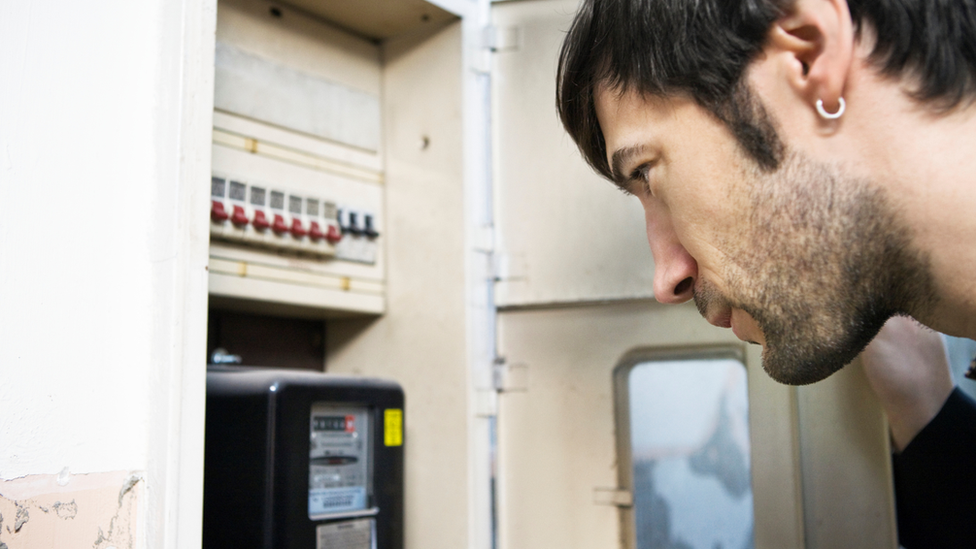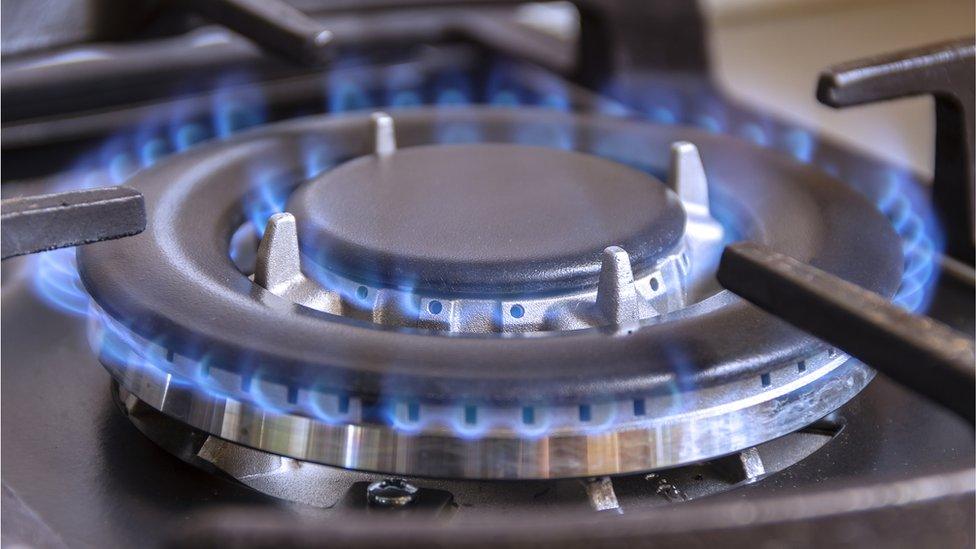Low income families could miss £400 fuel payment - charity
- Published

Scottish energy charities have called for support for low income families, amid fears many could miss out on the government's £400 fuel bill discount.
The money will be paid in six instalments to every home in Britain.
Campaigners say households with older pre-payment meters - often the most vulnerable in society - will struggle to use UK government discount vouchers.
In Scotland 33% of customers rely on pre-payment meters for electricity, compared with 18% in England and Wales, external.
More than four million homes in Britain use these meters, but fewer than half are smart devices, according to the energy regulator Ofgem.
Fuel poverty group, Energy Action Scotland, said those on the older meters faced a far more difficult process.
Frazer Scott, of Energy Action Scotland, told BBC Radio's Good Morning Scotland: "They are going to have to make the most amount of effort in order to cash these vouchers, every single month when they receive them.
"There's a risk that, through no fault of their own, people simply don't cash them or receive them on time, it's real concern."

All households are eligible for the full £400, part of the Energy Bill Support Scheme, regardless of income or size of house.
But how the money is received will depend on how you pay your bill.
Households will see a discount of £66 applied to their bills in October and November, and £67 a month from December to March 2023.
Customers paying by direct debit, either monthly or quarterly, will see an automatic deduction off those bills.
Those with modern "smart" pre-payment devices will see an automatic monthly top-up added to their account.
But families with older pre-payment devices will not get this automatically.
They will receive an energy bill discount voucher in the first week of each month, via text, email or in the post.
Customers will have to redeem these in person at their usual top-up point, such as a local Post Office.

Energy Action Scotland have described the grant as "simply inadequate", as analysts predict the average household energy bill for January alone will be £500.
Mr Scott added: "The government is going to have to do a lot more but what it means for people is, for many they will simply be unable to heat or power their home.
"It's unacceptable that in the 21st Century in Scotland that people would be in such a position."
Pre-payment meters are often installed by suppliers in homes that have fallen into debt, although some people may opt for a meter to help them budget better.
In addition, landlords often install them in rental properties to ensure tenants do not leave without paying their energy bills.
'Impossible choices'
Caitlin Logan, of One Parent Family Scotland, said the group was also seeing a rise in families in fuel poverty.
She said: "There are parents speaking to us every day who are being left with impossible choices, choosing to limit their own food intake so they can meet their children's needs.
"This tends to be what happens with parents. They make choices to make sure that their children have as much as possible of what they need, and then it is the parents that are left out in that situation."
The UK government said the £400 payment is just "one small part" of a wider package of measures.
Business Secretary Kwasi Kwarteng said: "While no government can control global gas prices, we have a responsibility to step in where we can and this significant £400 discount on energy bills we're providing will go some way to help millions of families over the colder months."
Meanwhile, Citizens Advice Scotland warned that the discount system for pre-payment meters could leave vulnerable people exposed to scammers.
The group's Stephanie Millar said : "There is some concern over people on old-school pre-payment meters, who will be getting sent a voucher or credit by text email or letter.
"We know that some consumers are quite scared to open letters or emails from their supplier, and we are also concerned about the possibility of scammers trying to take advantage of this by sending scam texts and emails."

How have you been affected by rising energy prices? What difference would the discount make to you? Email haveyoursay@bbc.co.uk, external.
Please include a contact number if you are willing to speak to a BBC journalist. You can also get in touch in the following ways:
WhatsApp: +44 7756 165803
Tweet: @BBC_HaveYourSay, external
Please read our terms & conditions and privacy policy
If you are reading this page and can't see the form you will need to visit the mobile version of the BBC website to submit your question or comment or you can email us at HaveYourSay@bbc.co.uk, external. Please include your name, age and location with any submission.